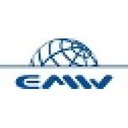Data Integration Specialist (25)
Norfolk, Virginia, United States
- Support and contribute to the ACT Requirements Data Management activities.
- Undertake and monitor requirements management for Regulatory Requirements across all life cycle stages to ensure integrity and traceability, and to ensure they remain valid, applicable, and continue to satisfy ACT requirements quality criteria.
- Maintain the online Regulatory Requirements Catalogue.
- Undertake and support the requirements change and configuration management processes, ensuring the reliability, authority and integrity of requirements in the ACT requirements repository.
- Interact with NATO staff to collect information needed to elicit, analyse, capture, validate, derive constraints from and manage Regulatory Requirements.
- Conduct information exchange with/from other data repositories using industry standard formats (Application Programme Interface (API) REST Services; Requirements Interchange Format (ReqIF) etc.).
- Provide support to the assurance of and reporting on Regulatory Requirement compliance across Capability Development Programmes.
- Develop processes and support the training and development of Requirements Managers in the use and compliance with Regulatory Requirements.
- Support development, implementation and continual improvement of a Regulatory Requirements Compliance Framework, to provide evidence-based assurance.
- Contribute and participate in the development of ACT policies, directives and process refinement related to Regulatory Requirements management.
- Work closely with HQ SACT, support ACT representation at appropriate levels of engagement at requirements management related meetings, discussions, committees and working groups.
- Contributes to HQ SACT broader continual process improvement activities.
- Supports Federated and Enterprise working practices, which facilitate cross-functional, collaborative and supported interdependent teams/individuals in other divisions and other directorates across ACT as appropriate.
- Performs additional tasks as required by the COTR related to the labor category.
Requirements
- Five years’ experience in the last 10 in the field of requirements engineering and/or requirements management to include elicitation, capture, development, analysis and evaluation of requirements, including the management of requirements traceability and chance management.
- Recent experience, within the last five years, in the integration of data into large, complex relational databases and/or requirements repositories.
- Recent experience, within the last five years, in undertaking Configuration Management methods and practices in a complex organization.
- Recent experience, within the last five years, in requirements development and management.
- A University Degree or Bacherlor’s equivalent in engineering, management, information systems, accounting, economics, finance, business administration, public administration, operations research, programme and project management or related disciplines.
- Demonstrable experience working in a large multinational organization, ideally within the NATO Command Structure (NCS) / NATO Force Structure (NFS) and familiarity with NATO agencies’ role in system development.
- Demonstrable recent (i.e. in the last 5 years) experience working in support of processes that were formally certified in accordance with the ISO 9001 standard.
- Demonstrable recent (i.e. in the last 5 years) experience in using project management software such as Jira and/or the use of Kanban boards in the management of a project or programme.
- Experience with IBM Rational DOORS Next or equivalent.
- NATO Secret clearance or national equivalent
Tags: APIs Data management Economics Engineering Finance Jira Kanban RDBMS Research
Region:
North America
Country:
United States
Job stats:
2
0
0
More jobs like this
Explore more AI, ML, Data Science career opportunities
Find even more open roles in Artificial Intelligence (AI), Machine Learning (ML), Natural Language Processing (NLP), Computer Vision (CV), Data Engineering, Data Analytics, Big Data, and Data Science in general - ordered by popularity of job title or skills, toolset and products used - below.
- Open MLOps Engineer jobs
- Open Lead Data Analyst jobs
- Open Data Science Manager jobs
- Open Data Manager jobs
- Open Senior Business Intelligence Analyst jobs
- Open Data Engineer II jobs
- Open Sr Data Engineer jobs
- Open Principal Data Engineer jobs
- Open Power BI Developer jobs
- Open Business Intelligence Developer jobs
- Open Junior Data Scientist jobs
- Open Data Analytics Engineer jobs
- Open Product Data Analyst jobs
- Open Data Scientist II jobs
- Open Sr. Data Scientist jobs
- Open Senior Data Architect jobs
- Open Business Data Analyst jobs
- Open Data Analyst Intern jobs
- Open Big Data Engineer jobs
- Open Manager, Data Engineering jobs
- Open Azure Data Engineer jobs
- Open Data Product Manager jobs
- Open Data Quality Analyst jobs
- Open Principal Data Scientist jobs
- Open Junior Data Engineer jobs
- Open GCP-related jobs
- Open Data quality-related jobs
- Open Business Intelligence-related jobs
- Open ML models-related jobs
- Open Java-related jobs
- Open Data management-related jobs
- Open Privacy-related jobs
- Open Finance-related jobs
- Open Data visualization-related jobs
- Open Deep Learning-related jobs
- Open PhD-related jobs
- Open APIs-related jobs
- Open TensorFlow-related jobs
- Open PyTorch-related jobs
- Open NLP-related jobs
- Open Consulting-related jobs
- Open Snowflake-related jobs
- Open CI/CD-related jobs
- Open Kubernetes-related jobs
- Open LLMs-related jobs
- Open Generative AI-related jobs
- Open Data governance-related jobs
- Open Hadoop-related jobs
- Open Airflow-related jobs
- Open Docker-related jobs
